INTERVIEW: Canadian Haviah Mighty breaks down barriers with “Obeah”
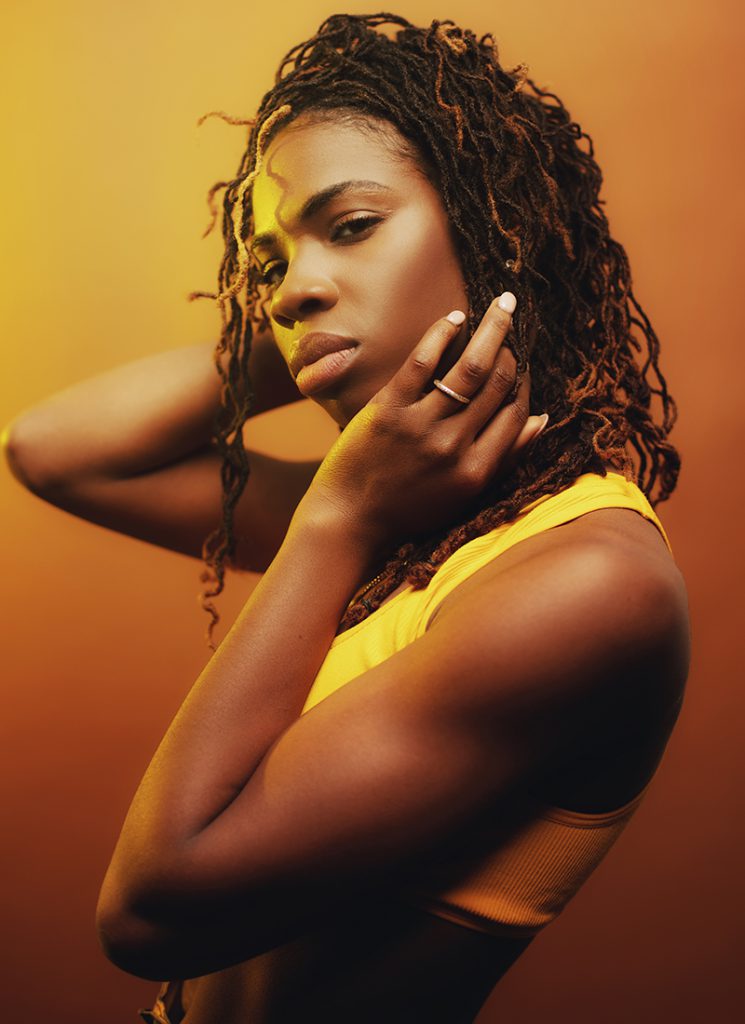
Haviah Mighty. Photos courtesy Yung Yemi.
Canadian hip-hop artist Haviah Mighty has seen her rapid success dominate her home country and beyond. She’s made waves with her breakthrough 2019 album, 13th Floor, becoming the first Black female rap artist to win the prestigious Polaris Prize.
Now, she continues to break down barriers through her distinctive blend of soulful R&B, dancehall and hip-hop. But she doesn’t stop there. Haviah Mighty is set on destroying racial stereotypes through her idiosyncratic lyricism. Her latest single, “Obeah,” which was produced by her younger brother, Mighty Prynce, and released last week, pays homage to her Caribbean heritage and her family’s beliefs.
In a phone interview, Haviah Mighty spoke about spirituality, family, racism in the music industry, and what “Obeah” means to her.
RIFF: “Obeah” is a very empowering song, I felt like I could take on anything after listening to it. Is that how you wanted your fans to feel, despite the distancing of a friendship that your song talks about?
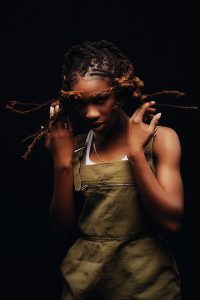
Haviah Mighty.
Haviah Mighty: Yeah, definitely! You have to empower yourself first. If someone can bring you down, some external entity and energy, that’s a dangerous place to be if someone else can control where you find value in yourself. I definitely think it’s important to develop self-value and to maintain and sustain that. That’s a huge focus for me.
On “Obeah,” you say, “Watch them friends/ Watch who you keep close.” It feels like one of your friends might have sabotaged you. What happened?
Haviah Mighty: I don’t think it is one particular situation. I think getting more successful as a musician has allowed me to see how some people that I viewed once as friends weren’t really friends, and I think the trajectory of my career allowed me to see these people in a different facet and see the different energy that they were giving me. I started to recognize that the relationship was no longer justifiable. It became very obvious how important it is to conserve energy, and I think that my perception of energy became stronger. … That made it a lot easier for me to recognize when to push that energy away.
Is that something you found hard to accept?
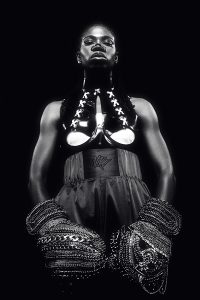
Haviah Mighty.
Haviah Mighty: Not me. I think for some people it would be. … I didn’t grow up with a lot of friends, so I think for me it was actually easy to understand because I kind of have a little bit of that lone wolf energy and I’ve always had that. I have three older sisters and a younger brother, and we’re very close. I think just having close family retains what it means to have someone that is there for you no matter what. I grew up having that luckily, I’m extremely grateful for that.
There’s clever contrast between the definition of the song name “Obeah,” which is the system of spiritual healing developed by West Africans in the West Indies, and then the context of the song, which seems to be empowerment but also a warning. Was this on purpose?
Haviah Mighty: Yeah! My dad is Jamaican and so that’s where the concept of Obeah-ism is tied in. For me there’s always been that relative meddling with spirits that are relative to what Obeah is, and I know some people do practice that as a spirituality. As somebody who believes in energy, I believe you can do those things via the energy you output, right? I believe that when you do positive things and you work really hard, you’ll see the reward. I believe in that kind of karmic reaction.
Did your family influence the kind of music you’d listen to and the music that you’re making now?
Haviah Mighty: I would say growing up in Toronto with a pretty big family, I was kind of just in a conglomerate of many different sounds, genres and varieties of music that I could just be inspired by. My dad was listening to a lot of cultural reggae, whereas my mom was more soul, R&B; and then my sisters’ varies across the board from pop to rap to other genres as well; and even being in singing lessons and singing Disney songs.
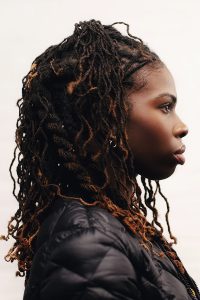
Haviah Mighty.
It was a very wide platform for exposure to music for me when I was younger, and I would say [it was] largely inspired by family and of course the region as well. Just being from Toronto, it’s very multicultural in the sense that there’s just many people that have immigrated here, so you get exposure to things you wouldn’t [otherwise]. It’s not as mundane as one area with one type of person.
You’ve performed with one of your sisters before, Omega Mighty, on your track “Wishy Washy.” What was it like working in a professional environment with her? Did you run into any sibling disagreements?
Haviah Mighty: Luckily it went very smooth. It’s very easy to work with Omega, she’s awesome. The process of recording was really great. I called her into the studio and just like a client, she came on time and cut her verse and it was a lot of fun. It’s great working with her, actually, and I can’t wait to do a couple more things with her because we do have a very seamless working relationship.
With the prevalence of the Black Lives Matter movement, is it even more important to embrace your family’s culture?
Haviah Mighty: Yeah, I’ve always thought it was important, but I think it’s equally as important on a public-facing front. But I’ve been doing it and will continue to champion where it is that I come from and who it is that I come from. As a family oriented individual, those values that have been instilled in me through my family, I think those things make its way into my messaging, as well.
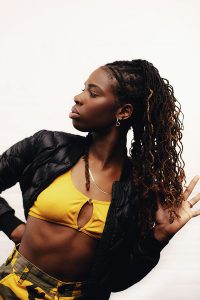
Haviah Mighty.
You took part in protests Did you feel it was your duty to attend in person rather than showing unity over social media?
Haviah Mighty: I did. I felt like they were accessible, I went to one in Toronto and I went to one in Hamilton, and I was able to attend and show support. It was no loss or sweat off my back; the inconvenience was low, so why not be in solidarity with other people that are fighting for the same things that I’m fighting for?
Is racism still something you deal with even though you’re an established performer?
Haviah Mighty: Oh yeah, definitely. I don’t think that racism is something that isn’t felt in industry, I think it just looks different depending on the industry. I’m still a Black, female rapper in a country fighting for opportunity, so I definitely do see what those setbacks are. You get it in different waves and I don’t think that being a musician takes that away. It just looks different.
Follow writer Gabriella Ferlita at Instagram.com/gabriellaferlita and Twitter.com/Gabriellaf_17.
